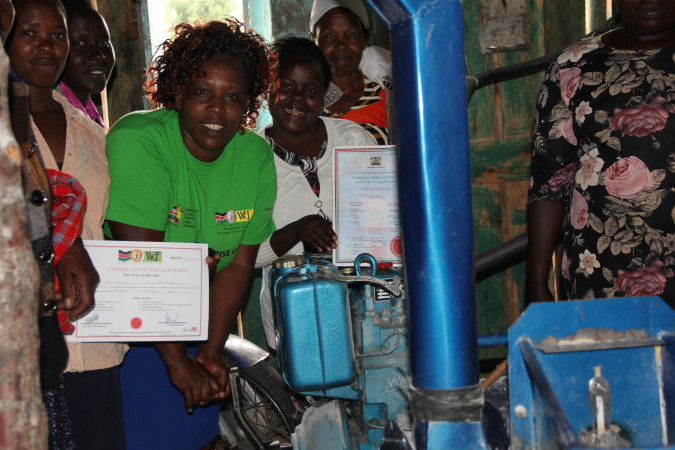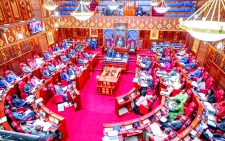Bomet women mint cash from posho mill project

In the interior sides of Soget village in Bomet Central, one can easily spot Soget Posho Mill.
The smooth operation of the business is constituted in a manner that a visitor would mistakenly think it is a sole proprietorship project. However, it is owned and managed by Soget Women Group. Their secretary, Joyce Cherono, says the venture was established by funds they acquired from the Women Enterprise Fund (WEF).
WEF was launched by the government in 2007 with the principal objective of economic empowerment of women entrepreneurs in the informal sector.
Since its inception, immense resources have been put in place by the government’s informal credit and financing, without considering much collateral and securities, which mostly happens in the private banking sector.
Through WEF, groups like the Soget Women Group are formed and duly registered under the Social Protection Department, and after fulfilling the requisite requirements funds are disbursed.
Funds are used to establish small and medium enterprises and even support the survival and growth of other established businesses by these groups.
Cherono said their group, which comprises 12 members, was registered six years ago and so far, they have received funds from WEF twice. They were first given Sh100, 000 that they used to venture into poultry farming, a viable idea that paid the loan after one-and-half years.
“After duly registering our group we qualified for Sh100, 000 that we used to establish a poultry farm. We bought a chain link and 100 chicks for a start,” explained Cherono. She continued: “Some of the funds were set aside for feeding the chicks and fortunately after some months, we started reaping from the project. We would collect about 80 eggs daily. We increased the stock and as the business picked up we got enough proceeds that enabled us to settle the loan.”
Their financial ledgers indicate that the project would fetch Sh3,000 a day, where they shared funds and remitted some to their premiums. “We bought calves for each member from our savings,” explained Cherono.
Daily income
After servicing their first loan, an officer from the fund informed them that their loan limit has been adjusted to Sh350, 000.
They applied for the loan and established Soget Posho Mill, a diesel-driven machine due to lack of electricity in the area. Cherono says they installed the mill in 2019 at a cost of Sh200, 000 and used the remaining funds to acquire a stock of cereals.
“Everything is going on as planned. At the moment, we have hired one of us here,” Cherono said. The women group have established a customer base within the village and other adjacent neighbourhoods, which has increased their income allowing them to easily service their loan. “We are about to clear the loan. Although the Covid-19 pandemic affected the business, we re-adjusted swiftly,” said Cherono. She noted that through government-initiated projects like WEF, they have been able to advance both socially and economically.
The women have been able to pay school fees for their children without a bare-knuckle struggle.
Evelyn Chemutai, a group member, affirmed that feeding her family was a problem before joining the initiative.
“I have plenty of milk and sometimes we share eggs from the poultry project. The government has done a lot in improving the livelihood of women countrywide,” she said.
WEF has built the capacity of women in business, imparting them with management skills, to enable them to manage their micro-credit enterprises, improve performance and make a living out of it at while servicing their loans.
Since the inception of WEF, the government has disbursed Sh341, 710 million to 2,521 groups in Bomet.
-KNA












